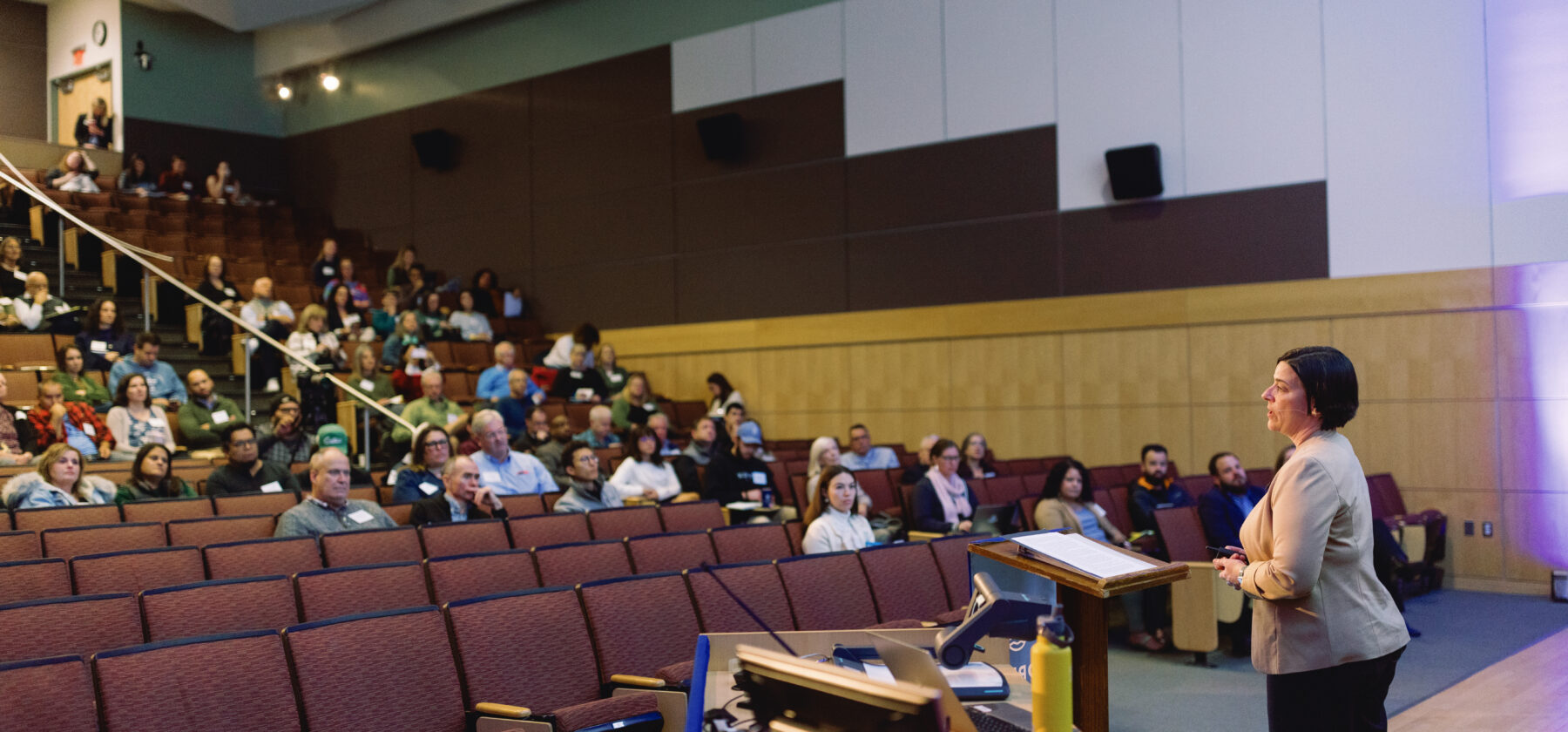Redesigning Ministry for the Next Generation: Gordon College’s Faith and Learning Initiative Gathering
Last week, while students were home resting during the quad break, over 160 Christian leaders, from four different states and over 17 churches and institutions, representing more than 10 denominations, gathered on campus. The gathering, “Redesigning Ministry for Rising Generations,” was the latest workshop hosted as a part of Gordon College’s Faith and Learning Initiative, funded by a $75,000 grant from the Cecil B. Day Foundation and organized by leaders across campus. The event focused on preparing the rising generation to live out the Gospel, partnering with faith-based organizations across the northeast and beyond “for such a time as this.”
“The next generation doesn’t trust any institution because they can start their own in a heartbeat,” Gordon College President Mike Hammond said in his remarks kicking off the event. “But we believe that we’re going to see the church continue to grow because they are uniquely positioned. We just need to think about creative ways to equip the next generation to fulfill the Great Commission.”
Coaching the Next Generation
Keynote speaker Dr. Sharon Galgay Ketcham, dean of the School of Ministry, Theology & Biblical Studies and author of Reciprocal Church: Becoming a Community Where Faith Flourishes Beyond High School, started with some sobering statistics about faith experiences and perspectives among rising generations: 63 percent of young people have no religious affiliation whatsoever, just 29 percent are actively part of a spiritual community and only 9 percent of these reached out to their community during a time of difficulty.
“Our conception and practices of discipleship and faith formation belong to a different era. And for many, they no longer are translating into transformative encounters with Jesus Christ,” Ketcham said. “Something has shifted. It’s important for us as an institution to say it is broken.”
However, there is room for hope: 78 percent of young people say they are at least slightly spiritual. They’re “spiritually curious” about faith and Christianity, looking for meaningful experiences of faith and life alongside others, pursuing faith from a diversity of backgrounds and in a variety of worship methods. But young people are disenchanted with the program-building model the American church has used for decades. They’re starters, not joiners. Ketcham believes that if the Church listens to them and supports them to build the programs and initiatives they need and desire, they will come.
Ketcham gave an example of how this model of engagement worked at Gordon on a recent visit day that was designed entirely by students, including a Chapel service that was bursting with attendees. “In my 20 years here at Gordon I have never seen the response and worship like that that day,” she said. “Our team really made sure not to step on their toes and to focus on providing some scaffolding. We can teach the students some things and supply the resources without having to control it. We need to adopt more of a coaching mindset to stimulate the movement of spiritual experiences that is real, on our campus and beyond.”
Redesigning Effective Church Programs
After the keynote session attendees chose between four different workshops centered on designing faith programs for rising generations. Ellie Beatty, a spiritual director specializing in children, spoke about spiritual accompaniment practices for children that tap into their natural curiosity and spiritual sensitivity. Bryan Wilkerson, senior pastor at Grace Chapel in Lexington, MA, spoke about “spiritual refugees” who are searching for a faith-based home and the values of welcome and safety that churches can embody.
Dr. Ken Boa, president of Reflections Ministries, focused on his concept of spiritual, moral, relational, theoretical and functional excellences that drive programming, noting that most discipleship programs start with the functional parts of a program and ignore the spiritual and relational aspects at the center. Eugene Kim ’97, founder of ecclesial innovation think-tank and R&D lab New Wine Collective, described a practical, step-by-step method for innovating new initiatives by crowdsourcing and collaborating with the youth a church is trying to reach.
“In biblical terms, it’s being the body of Christ, made up of many diverse parts and giftings. We want to unlock the wisdom and potential of the whole, and for some of us that might mean learning to lead in a different way,” Kim said.
Christian Leadership: We’re in This Together
The day closed with a time of intentional reflection, and attendees were invited to spend time considering the lessons and practices they heard that day. Participants thought about how what they learned could impact them personally and how they would incorporate these ideas into their ministries to better reflect Jesus’ prophetic, kingly and priestly ministry, where he loved people by meeting them where they were.
“If you love the form of a church or program, you have everything to lose. But if you love the people, you’re free to receive whatever you need. We are not alone, and we have one another. We are in this together,” Ketcham said in closing.
 The Bell
The Bell